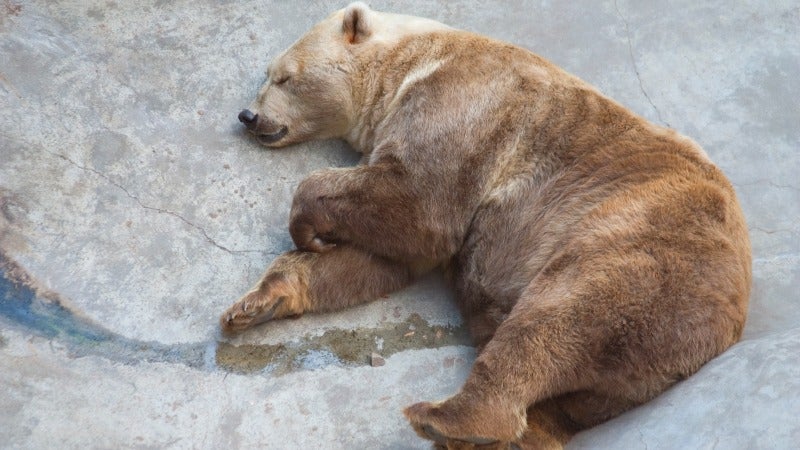Most medical research is done on or in test tubes, where the genes are easily manipulated by scientists. Larger animals, such as grizzly bears, are rarely subjects because they pose a few challenges—their claws, for example. But researchers at the Washington State University Bear Center in Pullman, Washington think we’ve got a lot to learn from the 1,000-pound Ursus arctos.
“When I thought about obesity, I thought about Yogi Bear,” says WSU researcher Kevin Corbit.
Grizzlies, like our , can eat 58,000 calories in a day, gain up to 100 pounds during hibernation, and lose it all with nary an artery clogged. Unlike humans, their health doesn’t suffer from the weight fluctuation. Corbit and other scientists from t, began research two years ago when the study was launched by Amgen research exec, Alexander Kamb.
“I want to learn how the grizzly bears work their magic,” Kamb says.
So far, research has shown that the bears seem to adjust their response to insulin, the hormone that controls how much sugar and fat are stored for energy. When gaining weight pre-hibernation, the bears are more sensitive to the hormone, eventually shutting off their insulin responsiveness completely,
However, until more information is gleaned from this study, eating another Christmas cookie just because you’re “going into hibernation” is probably not backed by science.


